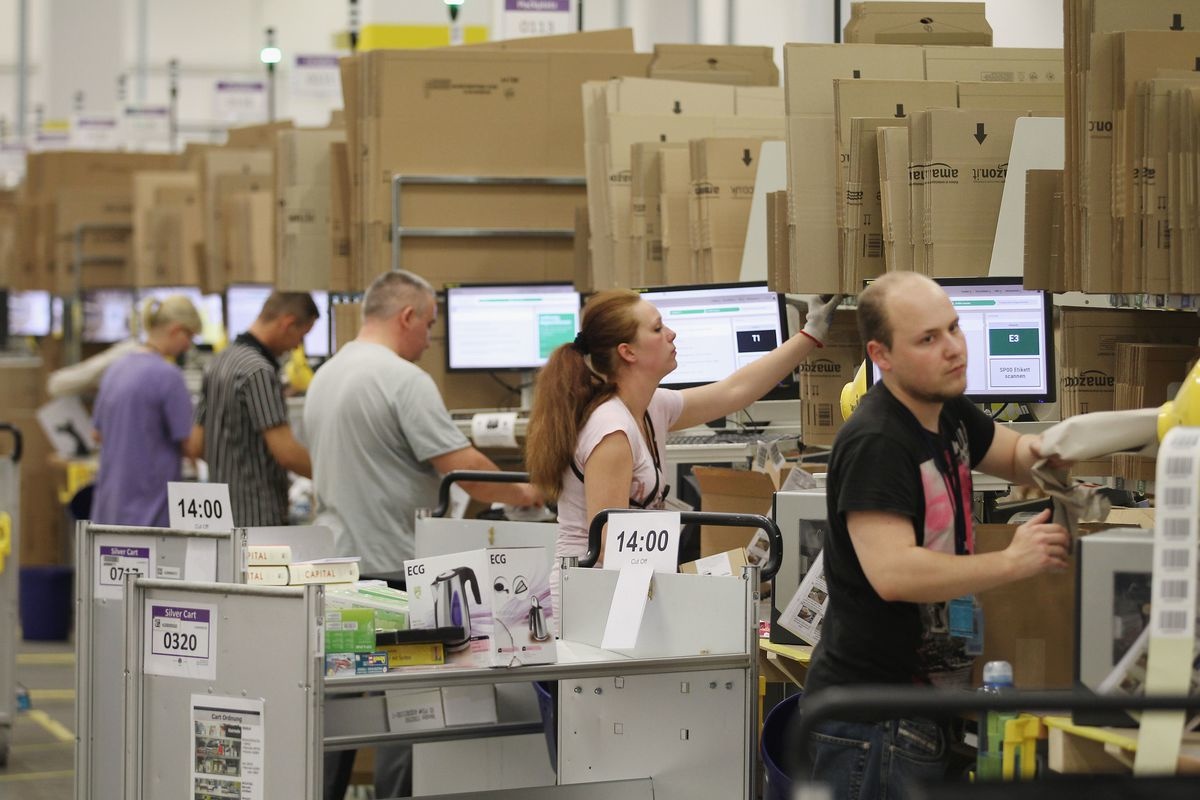Amazon’s Minimum Wage Increase: Big Business Still Puts Money Before People

Oct 09 | 2018

Business Insider
Amazon recently made headlines by raising its minimum wage for workers to $15 an hour.
The company had previously come under fire for “exploitative employment practices,” so many people felt the raise was long overdue. But despite making $178 billion in 2017, Amazon appears to be unwilling to take the fiscal hit to ensure fair wages for their employees. Many Amazon workers have now said that the raise will decrease their total compensation because Amazon will no longer give employees new stock grants and monthly bonuses.
Unfortunately, Amazon is not an isolated example of the negative effects a higher minimum wage can have on employees due to employers unwillingness to lose money. Professor Jon Meer, one of the authors of a new paper that explores the effects of higher minimum wages, said, “[Higher minimum wages] impact other forms of compensation like benefits and possibly other things that aren’t picked up in the data, like flexibility and free-parking.”
[shortcode-1-In-Article-Banner-728×60]
A study done by researchers at the National Bureau of Economic Research seems to confirm Meer’s findings. The study looked at employee pay data from 2011 to 2016, and found “robust evidence” that companies who raised minimum hourly wages also reduced the amount they paid for their employees’ healthcare benefits in order to make up for the added expense. The study found that workers whose minimum wage was increased by $1 found that 9% to 57% of their wage gains were offset by a decline in their employer’s health insurance coverage. So, while workers were technically making more money, they had to spend a larger portion of that raise on health insurance previously provided by their employer.
 Recode
Recode
In some cases of government-mandated minimum wage increase, workers end up with smaller paychecks because of employers unwillingness to cut profit in order to pay employees better wages. In Seattle, a 2016 increase to $13 an hour for minimum wage workers ended up meaning that many workers were scheduled for fewer hours in response to the change. A study by the University of Washington found that after the increase, Seattle workers clocked 9% fewer hours on average, and earned $125 less each month.
Considering Jeff Bezos once made $6 billion in 20 minutes, large companies like Amazon have little excuse not to pay workers enough to live without cutting their benefits. But for smaller businesses — often already fighting a losing battle against companies like Amazon — an increase in state-mandated minimum wage can have dire consequences. According to the Employment Policies Institute, many small businesses are forced to close their doors when faced with minimum wage increases.
But then, it’s important to consider, how viable is a small business that can’t afford to pay workers enough to live? Does America need or want more companies that can’t or won’t meet minimum wage standards? Perhaps the ability to pay workers a fair minimum wage should be a standard by which we measure the quality of an American company. Unfortunately, the only way we are likely to see widespread progress in the minimum wage conversation is if the culture of American business changes, and companies like Amazon stop valuing money more than people.
(adsbygoogle = window.adsbygoogle || []).push({});
Brooke Ivey Johnson is a Brooklyn based writer, playwright, and human woman. To read more of her work visit her blog or follow her twitter @BrookeIJohnson.










